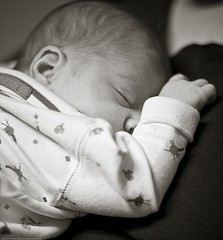Welcoming new arrivals into communities, and importantly introducing them to families and friends for the first time, for Christian families, a christening or baptism is a key moment in their new child’s life.
But as it signals the start of a lifelong faith commitment, a religious ceremony will not be appropriate for everyone. That doesn’t mean non-believers must miss the benefits they can provide. From a simple drink to ‘wet the baby’s head’, to more formal celebrations, birth is a joyous occasion, translatable across cultures and faiths.
So when considering christening alternatives, remember: any option you choose should be personal to you, whether that incorporates alternative beliefs, cultural traditions or takes simply takes the form of a family meet up.
Naming ceremonies
A naming ceremony formally recognises and celebrates a new arrival, and is common across the globe, with and without the additional strictures of culture, belief or religion.
A humanist naming ceremony for example, may echo aspects of a christening, but in a non-religious way, and similarly is designed to welcome a child into a circle of friends and family, and may establish ‘guide-parents’ or mentors for the newborn.
Looking at alternative religions, the Jewish brit milah occurs on the eighth day after the birth of a boy, and is traditionally a naming ceremony as well as the day for religious circumcision. A girls’ naming ceremony is known as a zeved habat, the date of which varies dependent on the Jewish community she will become a part of.
In Islam, infants are named on, or before the seventh day after birth. The Muslim call to prayer, whispered in the right ear by the father should be the first words a Muslim baby hears, and it is common practice for the head to be shaved on the seventh day too. Slaughtering a sheep or goat and giving the meat to friends, relatives and neighbours in celebration is traditional, though in western countries meat may be ordered rather than animals sacrificed.
Between the tenth or twelfth day after birth (or any time up to the first day of a baby’s second year, Hindus will perform their naming ceremony, Namkaran or Namakarana Sanskar. Traditionally mother and baby are separated from the rest of the family prior to the ceremony. The ceremony itself involves the close family, and normally takes place at temple, though a priest can do it at home.
Regardless of religion, by law, births must be registered officially. In most countries this must be done within just a few weeks.
Welcome to the world party
If you have no specific faith or beliefs to follow, it’s perfectly fine to tailor-make your own ceremony! Social gatherings and celebrations form a part of all welcoming ceremonies, and your own party can be personalised to suit your family uniquely. It can be as formal or informal as you want, and could be anything from a small, intimate family affair to something involving friends and neighbours. This way everyone, even other young members of the family can be involved in meeting greeting and welcoming the new little person!
Baby showers and mother blessings or blessingways
In western cultures it’s increasingly common practice to hold a baby shower before the birth, particularly for first time mothers who may not have any of the needed baby paraphernalia! A chance for the mum-to-be to relax and bond within a support network of friends, baby showers and mother/baby blessings ease worries to help new mums and babies prepare for birth positively. And best of all, they’re universal – people of any, or no faith can be involved.
The activities involved in blessingways and showers provide practical help before, during and after the birth, minimising stress to allow new parents to welcome and bond with their infant easily.
Creative activities create meaningful and helpful items for use throughout the birth experience. Many blessingways for example include bead ceremonies (each one of the mothers’ friends sends or brings a bead to create a birth bracelet or charm to have during labour), or quilt sewing (each person sews one square, then all are brought together to create a quilt for the baby).
Other parts to blessing celebrations include pampering, other creative, supportive activities such as candle or cord ceremonies, plus of course a sharing of good wishes and blessing for the pregnancy, birth and for the child’s future. A popular activity that many friends of parents-to-be choose, is to each bring a healthy meal along, which can be added to the freezer to be used after the birth, minimising stress, saving time and keeping new parents healthy and happy as they welcome their child and begin to build a life together.
Suzanne Gibbard is a mum to two and runs a business called Bundles Of Joywhich sells baby gifts and specialist christening gifts. When she isn’t looking after her family or running a business, she likes to blog on parenting topics.
Earnest Parenting: help for parents who want to make baby naming a special occasion.


